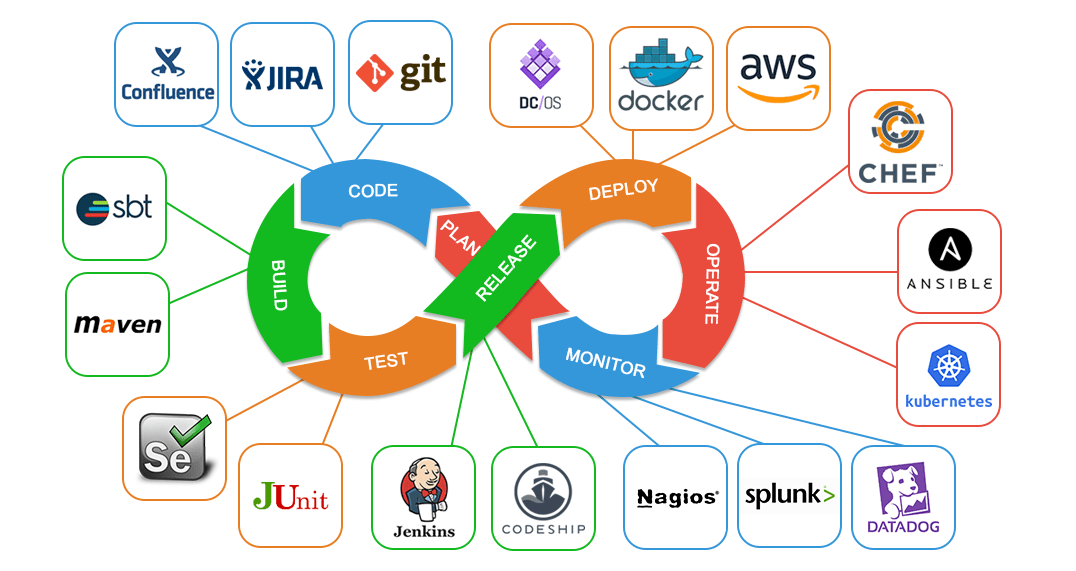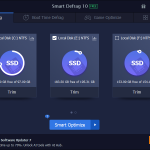Empower Your Journey: Elevate Your Skills with a Comprehensive DevOps Course
A revolutionary method for software development and operations, DevOps has arisen in the fast-paced world of technology, where innovation is essential to staying ahead of the curve. To provide high-quality software more quickly and effectively, DevOps symbolizes a technological and cultural transformation that places an emphasis on automation, continuous improvement, and teamwork. Demand for qualified DevOps personnel is still rising sharply as businesses all over the world use DevOps to power digital transformation. A thorough DevOps course would be a great place to start if you’re prepared to empower your path and advance your profession. This book will cover the importance of DevOps education in transforming careers, the essential elements of a thorough DevOps course, and how taking one can improve your chances of landing a good job in the cutthroat IT sector.

Recognizing the Effect of DevOps Training
Giving IT workers the best practices, expertise, and information they need to succeed in DevOps roles and advance corporate success is made possible in large part by DevOps education. Professionals can create value for their organizations, drive innovation, and streamline operations by investing in DevOps education, which equips them with a thorough understanding of the ideas, tools, and practices of the field. DevOps training can help you on your journey in the following important ways:
- Deep Learning: DevOps training offers a comprehensive learning experience that spans many subjects, such as the principles of DevOps, continuous integration (CI), continuous delivery (CD), infrastructure as code (IaC), configuration management, containerization, microservices architecture, and monitoring. A wide range of skills that are necessary for success in DevOps professions are developed by participants.
- Hands-on Experience: DevOps courses provide a strong emphasis on experiential learning, enabling students to apply theoretical ideas in real-world settings through labs, exercises, and projects. Participant confidence in their ability to apply DevOps methods successfully increases as they work on practical projects that give them meaningful expertise with DevOps tools and technology.
- Obtaining Industry-Recognized Certifications: A number of DevOps schools train students toward certifications in the AWS Certified DevOps Engineer, Microsoft Certified: Azure DevOps Engineer Expert, and Google Cloud Professional DevOps Engineer fields. A certification helps people develop in their careers by proving their proficiency with DevOps methods and boosting their reputation in the workplace.
- Networking Opportunities: Participant networking in DevOps courses allows them to establish connections with thought leaders, industry experts, and other like-minded people in the DevOps community. By enabling people to work together on projects, share ideas, and gain insights, networking promotes learning and information sharing.
Important Elements of a Thorough DevOps Training Program
Many subjects, resources, and techniques that are necessary for success in DevOps positions are covered in an extensive DevOps course. Key elements of an extensive DevOps course include the following:
Collaboration, automation, continuous integration, continuous delivery, and infrastructure as code are just a few of the core ideas and techniques of DevOps that participants encounter. They are aware of the ways in which DevOps concepts speed up delivery cycles, increase operational efficiency, and improve software quality.
Tools and Technologies Used in Real-World Environments by DevOps: Containerization platforms (e.g., Docker, Kubernetes), infrastructure as code tools (e.g., Terraform, Ansible), version control systems (e.g., Git), CI/CD tools (e.g., Jenkins, CircleCI), and monitoring solutions.. (e.g., Prometheus, Grafana).
Participant exposure with DevOps tools and technologies in a simulated environment is provided through hands-on labs and projects. Gaining experience in real-world settings, problem-solving, and solution implementation helps participants get ready for the problems they’ll face in their DevOps careers.
- Industry Case Studies: Participants can learn how DevOps concepts and principles are used in actual businesses by looking at industry case studies. In order to learn from successful DevOps implementations across many industries and sectors, participants evaluate case studies, pinpoint best practices.
- Exam Preparation for Certifications: To assist students in getting ready for DevOps certifications, DevOps courses include in-depth study guides, practice tests, and assessment tools. Exam-taking techniques are taught to participants, who also get a review of important ideas and a readiness assessment before taking certification tests.
- Knowledgeable Instruction: DevOps courses are taught by seasoned professors with in-depth knowledge of the industry. They give students insightful lessons, useful advice, and examples from real-world situations. To aid with participants’ comprehension of DevOps concepts and procedures, instructors impart their wisdom, experiences, and best practices.
A Comprehensive DevOps Course Can Help You Advance Your Skills
There are several advantages and chances for career development and progress while taking a thorough DevOps training, including:
- Improved Employability: Companies looking for talented practitioners to spearhead digital transformation and innovation are in great demand for DevOps professionals across a range of industries. Employers find that participants who successfully complete a comprehensive DevOps course and acquire certifications are more marketable.
- Progression in Career: Obtaining certifications in DevOps can lead to fresh prospects for professional growth in DevOps positions like automation specialist, release manager, site reliability engineer (SRE), and DevOps engineer. Professionals with a Devops certification can expect to earn more money and have better job opportunities than those without one.
- Ongoing Education: The process of learning and developing continuously is central to DevOps education. Professionals must remain current with the newest trends, technologies, and best practices in the DevOps ecosystem even after finishing a DevOps training and receiving certifications. DevOps experts can enhance their continuing professional development with a multitude of educational materials, seminars, workshops, and community forums.
- Contribution to Organizational Success: By boosting operational effectiveness, increasing deployment frequency, and improving software quality, DevOps specialists significantly contribute to the success of their organizations. Professionals may help businesses expand and become more competitive by using DevOps techniques, which eventually lead to faster time-to-market, decreased downtime, and greater customer satisfaction.
Lastly, Utilize DevOps Education to Strengthen Your Path
All things considered, taking a thorough DevOps course is a wise investment in your professional growth and career. In the dynamic and quickly changing sector of DevOps, you can establish yourself as a leader by obtaining in-depth knowledge, useful skills, and credentials accepted by the industry. In the cutthroat IT sector, empower your path, broaden your skill set, and seize fresh chances for fulfillment.
A thorough DevOps training lays the groundwork for a fruitful and satisfying career path, regardless of whether you’re an experienced IT expert wishing to switch to DevOps or a novice motivated to investigate the opportunities in DevOps. While there are many ways to begin and paths to choose, the best way to begin a life-changing learning journey that will mold your future and enable you to accomplish your objectives, take the first step toward your DevOps ambitions right now.



